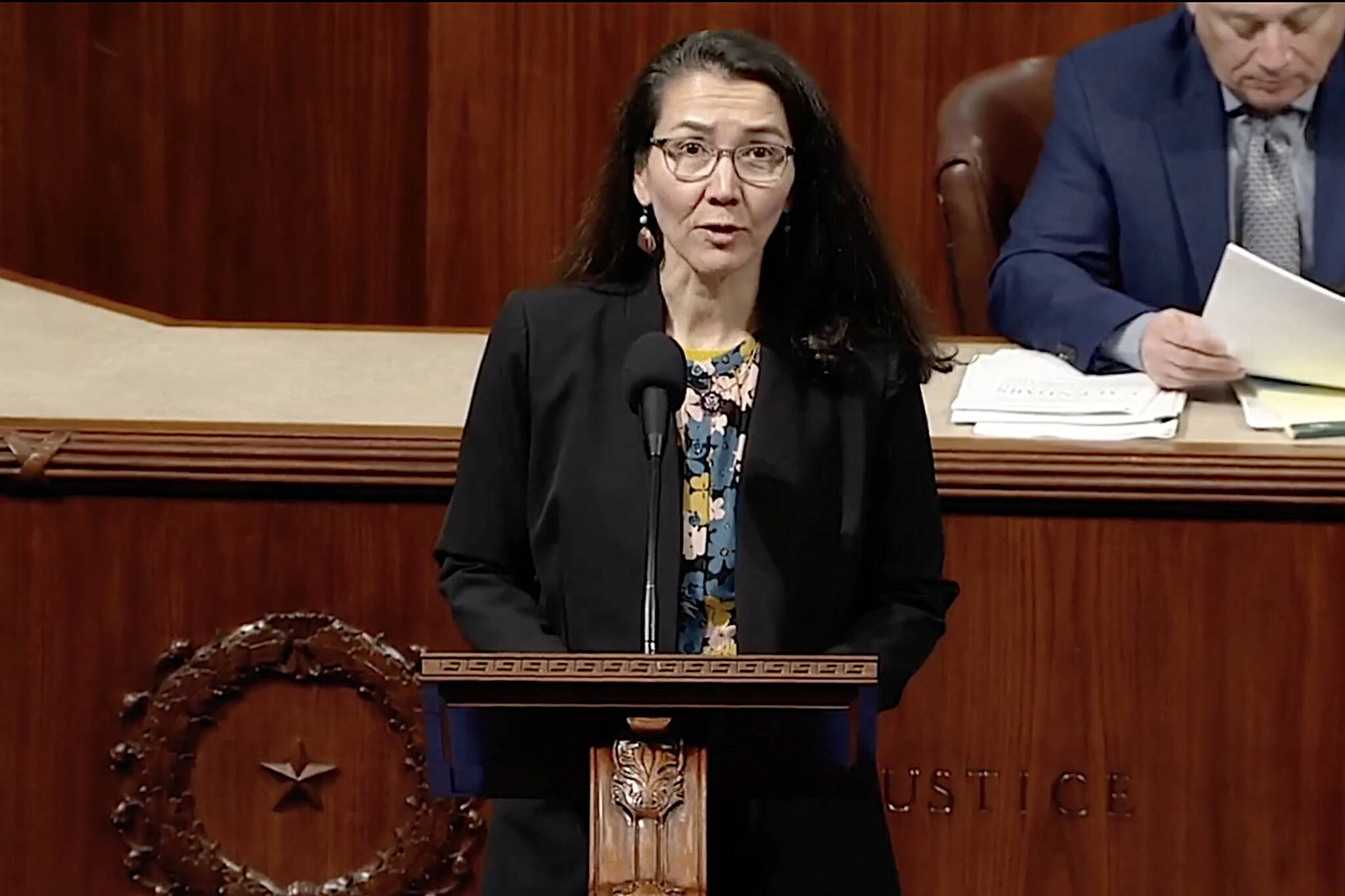A months-long delay in the possible merger of the parent companies of Fred Meyer and Safeway due to concerns raised by state and regulators, union groups, consumers and others isn’t cause for celebration, U.S. Rep. Mary Peltola, an Alaska Democrat, said Thursday. Rather, it’s a reason to keep the pressure up on opposition efforts.
Peltola, who earlier this month hosted a town hall with union leaders in Anchorage and has joined the rest of Alaska’s congressional delegation in written opposition to the Federal Trade Commission, reiterated her concerns in a floor speech at the U.S. Capitol on Wednesday and in an interview with the Empire on Thursday.
“Alaskans still need to keep the pressure on because this isn’t a decision,” she told the Empire. “This is a postponement. It’s a delay of a decision which hopefully will work in our favor so that we can explain the myriad of downsides of this merger and get more Alaskans to share their concerns with the FTC. And my other hope is that because it’s delayed till August we might be able to get the FTC to come to Alaska and have a field hearing. That’s one of my big hopes out of this delay. Alternatively, or in addition, I think it would be good to have some tele-town halls that the FTC could participate in.”
The proposed $25 billion merger between Kroger Co. and Albertson Companies Inc. was first announced in 2022 and the companies hoped to sign the deal by this March. But Kroger, the parent company of Fred Meyer, issued a statement Monday the timeline is being pushed back to about August.
“While this is longer than we originally thought, we knew it was a possibility and our merger agreement and divestiture plan accounted for such potential timing,” the statement notes.
Kroger announced in September it plans to sell 14 of 35 Carrs Safeway stores in Alaska as part of the deal, which sells more than 400 stores and other assets nationally to C&S Wholesale Grocers. It is not known which Safeway stores in Alaska, including Juneau’s would be targeted for closure.
Kroger and Albertsons have stated they intend to make significant investments in the stores kept after the merger to both boost working conditions for union employees and lower prices for consumers. But the concern expressed by many opponents is the opposite will happen, which in Alaska is based on adverse results from the 1999 merger of Safeway and Carrs.
Peltola and other Alaska opponents of the merger also cited issues largely unique to the state’s remoteness and isolated communities.
“The examples that I like to share when I was visiting with the FTC chairwoman I talked about how important it is to have rock salt in our stores before fishing season to preserve our fish,” she said. “How important it is that we have wide-mouth mason jars, Ziploc bags, mosquito coils. And she was very interested in these specific items because if you live in Washington, D.C., or if you’re from a city you don’t have that personal background with putting meat in your freezer or drying fish.”
Also, Alaskans often can’t order items online like people in the Lower 48, Peltola said. Another concern is in many towns the only two supermarkets are a Fred Meyer and a Safeway, and the loss of one — especially the more general merchandise Fred Meyer — would significantly affect available goods in those communities.
If the merger does occur, the next concern will be how C&S or another purchaser of divested stores adapts to the Alaska market, Peltola said. She said options might include an advisory board with longtime past grocery managers if the new owner is willing.
“The biggest thing I think is transparency,” she said. “If they would share with us what their plans are and then give us a chance to give our take on their plans. Of course, Alaskans will be the first people to welcome them. If this happens we will do everything in our power to make their stores be as successful as we can. We don’t want any closures.”
• Contact Mark Sabbatini at mark.sabbatini@juneauempire.com or (907) 957-2306.

